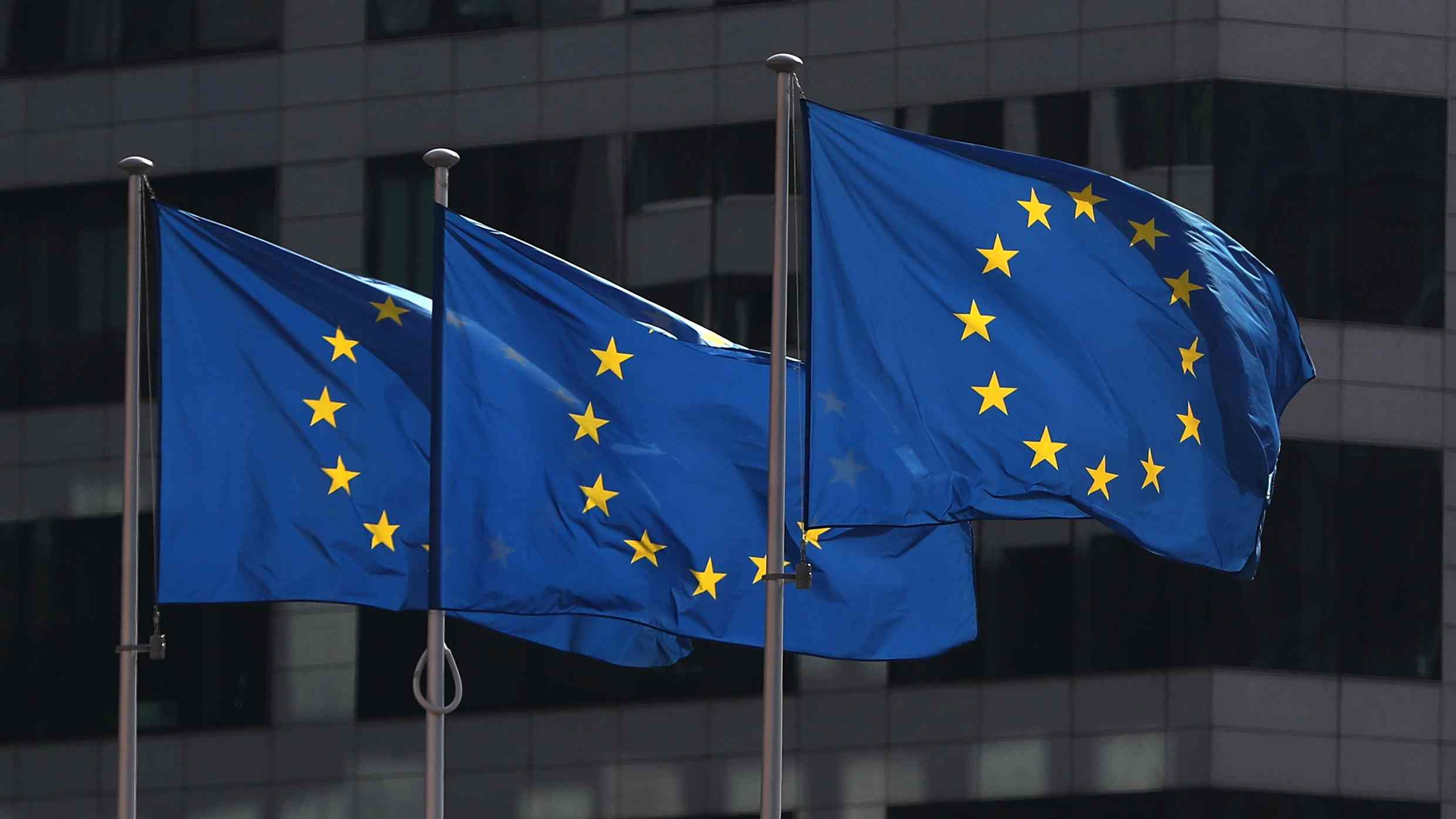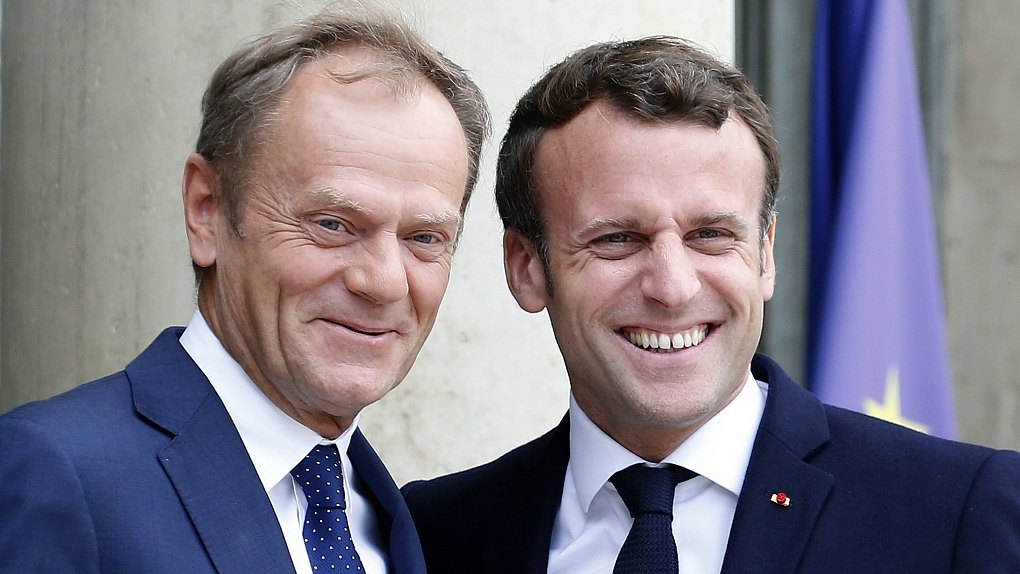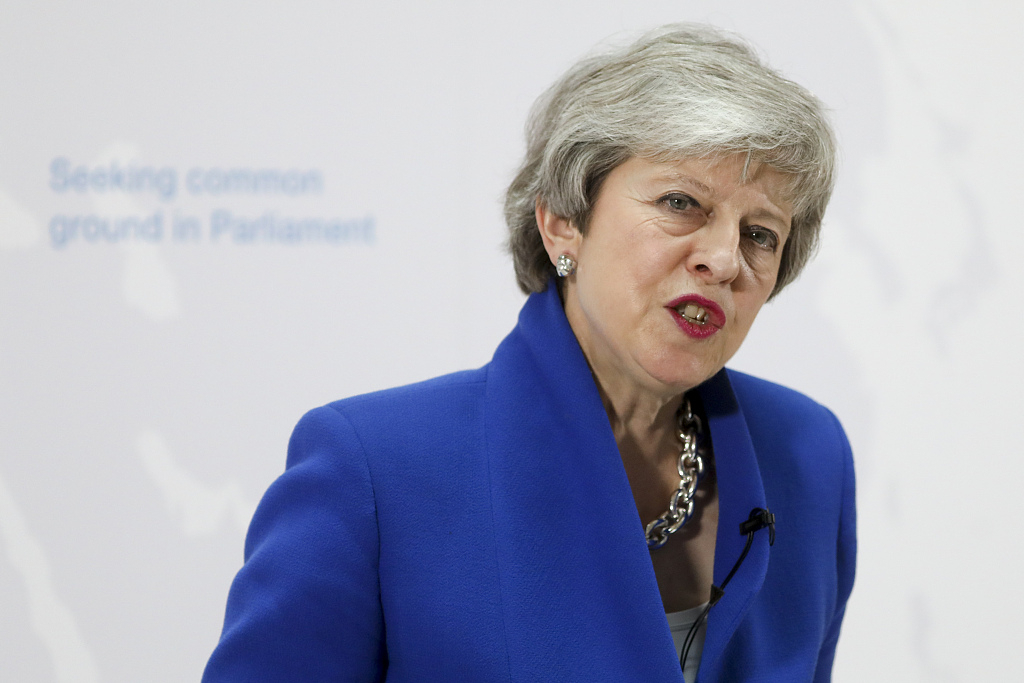
Opinion
11:55, 23-May-2019
British voters are set to desert the mainstream in the EU elections
Tom Fowdy

Editor's Note: Tom Fowdy, who graduated from Oxford University's China Studies Program and majored in politics from Durham University, writes about international relations focusing on China and the Democratic People's Republic of Korea (DPRK). The article reflects the author's opinions, and not necessarily the views of CGTN.
Thursday sees British voters head to the polls to vote in the continent-wide European parliamentary elections. It is a poll few imagined they would be participating in, for the expectation was by this point Britain would have already departed from the EU. However, with Theresa May's failure to get her withdrawal agreement through the House of Commons and forge a commons consensus on the terms of Britain's exit, the UK found themselves with no other choice but to take part.
The bad news does not end there for Theresa May either. Opinion polls running up to the elections show that her party will perform abysmally, finishing fourth or maybe even fifth as mainstream voters desert the party, as well as the Labour opposition, to vote along with stringent remain or leave lines.

French President Emmanuel Macron (R) welcomes European Council President Donald Tusk to Paris, May 20, 2019. /VCG Photo
French President Emmanuel Macron (R) welcomes European Council President Donald Tusk to Paris, May 20, 2019. /VCG Photo
The benefactor is set to be Nigel Farage's newly formed Brexit Party, as well as the anti-Brexit Liberal Democrats sitting in a distant second. Thus, as has been conventional, in every sense the European Parliamentary election is being weaponized as a protest vote against the two main parties on the matter of Brexit, exposing the deep running and hostile political fractures which now shape British politics.
The utilization of European Parliament elections in Britain for protest vote purposes is not new, even if the context by which this one is operating in is unique. EU elections are perceived as a “low stakes” contest in Britain. Because the EU parliament has no relationship to national policymaking and therefore no association with people's jobs, livelihoods and futures, the British public do not place significant interest or importance in the elections.
As a result, turnouts are usually low and people feel they have freedom and incentive to choose beyond traditional party lines, giving way to form of political behavior described as a “protest vote” or a deliberate display of discontent against the status quo. This means that opposition and insurgency parties tend to do well in these contests, whereas government parties tend to suffer, with no government having achieved 1st place in an EU election since Margaret Thatcher in 1984.
Nevertheless, for the first time in British EU parliamentary election history, the vote will not just serve to be any protest vote, but a protest vote centered upon one specific issue: of course, Brexit. Voters are heading to the EU polls not to illustrate discontent against the economy, healthcare or any other issues that might be upsetting them, but to signal a sentiment pertaining to Britain's departure from Europe. This has created the unusual scenario whereby the public will protest vote not just against the government, but against both of the main parties.

Theresa May, U.K. prime minister, delivers a speech setting out a new proposal for her Brexit deal in London, UK, May 21, 2019. /VCG Photo
Theresa May, U.K. prime minister, delivers a speech setting out a new proposal for her Brexit deal in London, UK, May 21, 2019. /VCG Photo
Supporters of Brexit are outraged at the status quo. They see Theresa May as weak and failing to deliver, but they also see what they describe as a “betrayal” by the other parties, including Labour. These voters have quite obviously flocked to the Brexit Party.
Despite having no inclinations, policies or even ways as to how it can deliver Brexit, the name itself has been strong enough as a brand incentive for people to see it as valuable in voicing their position and discontent through. This has consolidated all the leave voters in one firm place, seemingly handing Farage victory.
On the other hand, remain supporters are equally upset. Furious at the situation of Brexit as a whole and of course the government, these people nevertheless focus their disillusionment upon the Labour Party. For them, Labour has not been decisive or tough enough to block Brexit. They are critical of its ambiguous, “sitting on the fence,” position.
As a result, these voters are deserting Jeremy Corbyn in this election for staunchly pro-remain parties including the Liberal Democrats and the Greens. In contrast to all the Brexit supporters being consolidated under one roof, this has produced split remain support.
Still, the message to Westminster is absurdly clear. The public on neither side is content with the political status quo. Be it either a failure to deliver Brexit or a refusal to offer a second referendum, they will consequentially use this European parliament election to make their voices heard, accumulating in poor results for both the government and the opposition and enormous gains for the political fringes.
Will it, however, change anything? Not likely. As has been mentioned, the European Parliament is irrelevant and external to Brexit negotiations. What will happen, however, is that the rise of the Brexit Party combined with greater gains for the Liberal Democrats and Greens will ultimately serve to consolidate and intensify the Brexit divide.
The political empowerment of these elections will ultimately serve to harden than soften people's allegiances to the debate. Britain will be evermore bitter and evermore divided.
(If you want to contribute and have specific expertise, please contact us at opinions@cgtn.com.)

SITEMAP
Copyright © 2018 CGTN. Beijing ICP prepared NO.16065310-3
Copyright © 2018 CGTN. Beijing ICP prepared NO.16065310-3